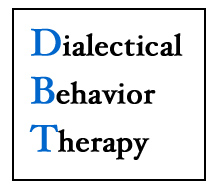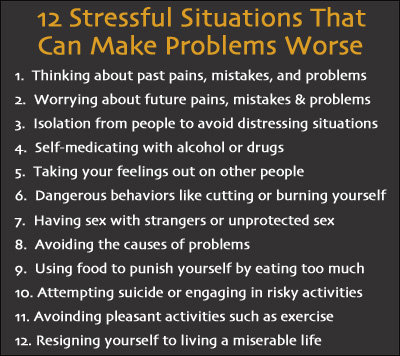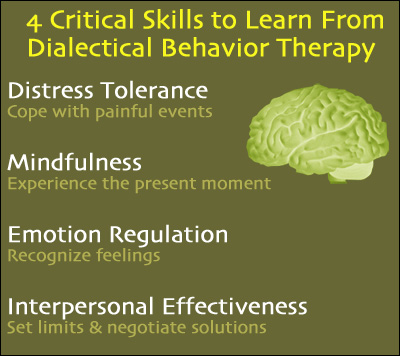Dialectical Behavior Therapy (DBT)
Dialectical Behavior Therapy (DBT)
Dialectical Behavior Therapy, also known as DBT, was originally used to treat mental health patients with Borderline Personality Disorder (BPD) who engage in self-destructive behaviors.
Developed by Dr. Marsh M. Linehan at the University of Washington, DBT has proven to be successful in treating other mental health conditions as well, including immoderate and addictive drug and alcohol consumption.
Consequently, as one of America’s leading Addiction Treatment Centers, Inspire Malibu actively incorporates this therapeutic tool in our addiction treatment regimen when warranted.
Dialectical Behavior Therapy Use at Inspire Malibu

We often use Dialectical Behavior Therapy in combination with both Cognitive Behavioral Therapy (CBT) and Motivational Enhancement Therapy (MET), which gives individuals the strongest tools possible to lead less stressful and happier lives.
DBT is based on incorporating acceptance and mindfulness into a contemplative practice that leads to a calming for the overwhelmed client.
Why Inspire Malibu Uses Dialectical Behavior Therapy
Modern scientific research has repeatedly proven that DBT is an efficacious therapeutic modality in psychiatric and addiction treatment.
Given this, Inspire Malibu is committed to helping the overwhelmed person learn ways to calm themselves in otherwise stressful circumstances, instead of becoming irrational or desperate.
Once learned, this skill better equips individuals to think more clearly and reduce or eliminate impulsive, often exaggerated reactions.
The core tenant of DBT is that of practicing “mindfulness,” which aids a person in tolerating and accepting emotionally-charged and often uncomfortable thoughts and feelings.
Born from a Buddhist meditative tradition, this contemplative though non-religious technique teaches an individual not to judge the circumstances, thoughts and feelings they are experiencing and instead gain a new perspective through re-contextualization.
This, in turn, subdues the over-reactive impulse the addictive or personality disordered individual may suffer from, instead creating a sense of peace through enhanced coping skills.
12 Overwhelming Situations That Make Problems Worse
There are many situations that create stress and overwhelming emotions that often lead to destructive behavior. Below are some examples of behaviors that can be minimized using DBT techniques.

2. You get anxious worrying about possible future pains, mistakes and problems
3. You isolate yourself from other people to avoid distressing situations
4. You make yourself feel numb with alcohol or drugs
5. You take your feelings out on other people by getting excessively angry at them or trying to control them
6. You engage in dangerous behaviors, such as cutting, hitting, picking at, or burning yourself or pulling out your own hair
7. You engage in unsafe sexual activities, such as having sex with strangers or having frequent unprotected sex
8. You avoid dealing with the causes of your problems, such as an abusive or dysfunctional relationship
9. You use food to punish or control yourself by eating too much, not eating at all, or by throwing up what you do eat
10. You attempt suicide or engage in high-risk activities, like reckless driving or taking dangerous amounts of alcohol and drugs
11. You avoid pleasant activities, such as social events and exercise, maybe because you don’t’ think that you deserve to feel better
12. You surrender to your pain and resign yourself to living a miserable and un fulfilling life.
4 Critical Skills Dialectical Behavior Therapy Teaches
DBT teaches behavioral mechanisms to help deal with the example situations listed above. Here are four core skills to be learned:
1.Distress Tolerance
Distress Tolerance helps to better cope with painful events by building up a resilience and providing new ways to soften the effects of upsetting circumstances.
2. Mindfulness
Mindfulness teaches ways to more fully experience the present moment while focusing less on painful experiences from the past or frightening possibilities in the future.
3. Emotion Regulation
Emotion Regulation provides skills to more clearly recognize feelings and then to observe each emotion without getting overwhelmed by it.
4. Interpersonal Effectiveness
Interpersonal Effectiveness offers tools to express one’s beliefs and needs, set limits, and negotiate solutions to problems.
Inspire Malibu’s Commitment To Excellence
As one of America’s leading addiction treatment centers, our approach to treating addiction and corresponding mental health conditions is founded on proven clinical and therapeutic practices.
In turn, this facilitates compassionate and comprehensive care and recovery for each and every client.
In addition to DBT, we also offer One on One Therapy and incorporate Cognitive Behavioral Therapy, and MET when deemed necessary to a person’s individually tailored program for successful addiction treatment.
For More Information About Dialectical Behavior Therapy in Los Angeles, Call Us Toll-Free at +1(800)444-1838.
